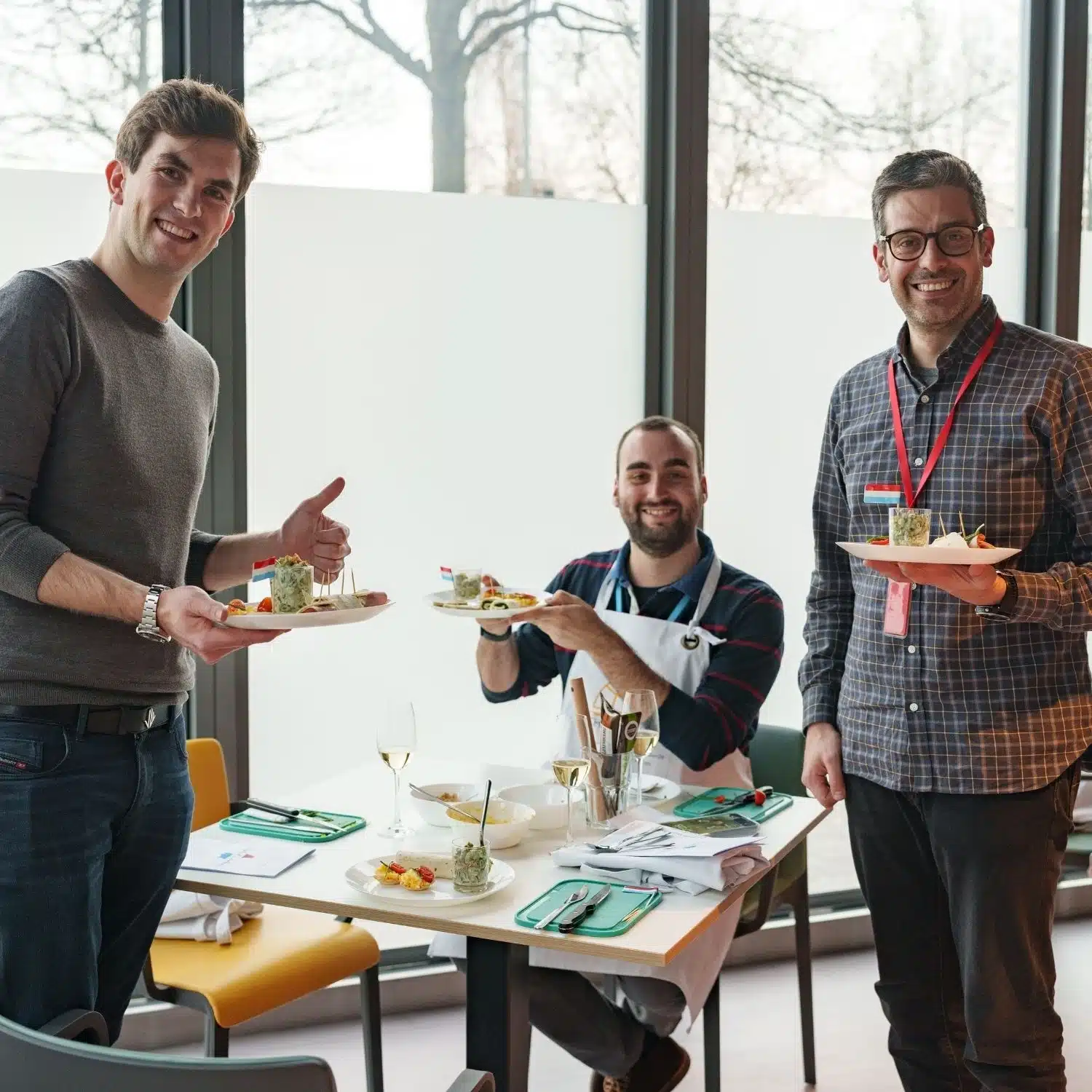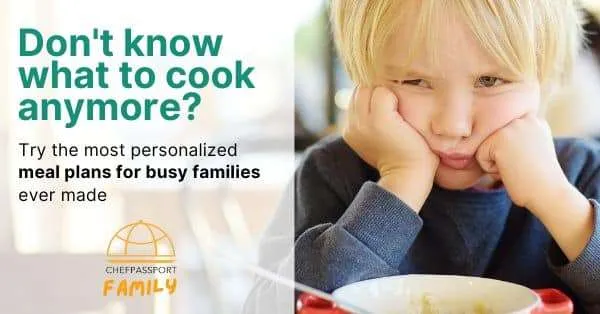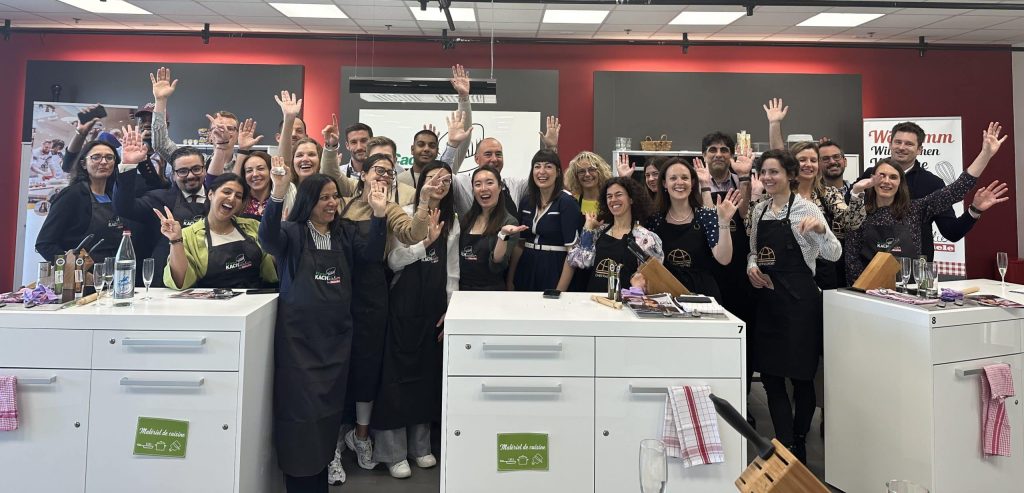Team building is vital in fostering collaboration, improving communication, and boosting morale within any organisation. While traditional team-building activities like trust exercises or group retreats have their place, many companies now offer more unconventional options to engage their employees meaningfully. Among these, cooking classes stand out as an increasingly popular choice. Combining fun, creativity, and teamwork, cooking classes offer a unique and rewarding experience that can strengthen team dynamics.
Why Team Building Is Essential
Team-building activities are not just about having fun; they are strategic efforts to enhance how people work together. Employees who participate in these activities develop better communication skills, trust one another, and collaborate more effectively. A strong sense of teamwork can lead to higher productivity, increased job satisfaction, and a more cohesive work environment.
Engaging in team-building exercises helps individuals recognize their strengths and the value others bring to the team. This is particularly important in today’s diverse workplaces, where effective collaboration can make or break a project’s success. By stepping away from the daily grind and participating in activities like cooking classes, teams can connect on a more personal level, which ultimately benefits the organization as a whole.
Benefits of Cooking Classes as a Team-Building Activity
Cooking classes offer a variety of benefits that extend beyond the kitchen:
- Improved Team Dynamics: Employees strengthen their communication and collaboration skills by working together in a new and enjoyable setting.
- Stress Relief and Fun: Cooking classes provide a welcome break from daily work routines, helping employees relax and recharge.
- Cross-Departmental Bonding: These classes bring together individuals from different teams or departments, fostering relationships that might not otherwise develop.
- Enhanced Problem-Solving Skills: Participants learn to adapt and solve problems under time constraints, a highly transferable skill to the workplace.
The Unique Appeal of Cooking Classes for Team Building
Cooking classes bring a fresh twist to traditional team-building activities. Unlike other options, cooking offers a hands-on experience that is both practical and enjoyable. Here’s what makes cooking classes a standout choice:

1. Hands-On Experience
Cooking is inherently interactive. Participants are actively involved in every step, from chopping vegetables to plating their final dish. This immersive experience keeps everyone engaged and encourages full participation, regardless of their cooking skills.
2. Collaboration and Problem-Solving
In a cooking class, team members must work together to follow recipes, manage time, and overcome unexpected challenges—like a missing ingredient or a cooking mishap. These scenarios encourage problem-solving and collaborative decision-making, which can be directly applied to workplace situations.

3. Creativity and Innovation
Cooking is as much an art as it is a science. Team members can learn with flavors, presentation, and techniques, fostering creativity and innovation. These qualities are invaluable in the workplace, where fresh ideas and out-of-the-box thinking are often key to success.
4. Fun and Informal Atmosphere
Cooking classes offer a relaxed environment where employees can let their guard down. Unlike formal corporate settings, the kitchen provides a space for natural, unstructured interactions. Laughter and camaraderie often flow as freely as the ingredients, helping to break down hierarchical barriers.
Tips for Organizing a Successful Cooking Class
To make the most of a cooking class as a team-building activity, keep these tips in mind:
- Choose the Right Venue and Class Type: Decide between in-person or virtual classes, and consider the skill level and preferences of your team.
- Tailor the Experience: Select recipes and themes that align with your team’s interests.
- Incorporate Feedback: Ask for employee input before and after the event to ensure it meets their expectations.
- Follow Up: Use post-event surveys to gauge the success of the activity and gather ideas for future team-building events.

Critical Elements of an Effective Cooking Class
To ensure a cooking class delivers maximum team-building benefits, certain elements need to be in place:
1. Expert Instruction and Guidance
A professional chef or instructor can guide the group through the cooking process, ensuring that even those with minimal experience feel comfortable and confident. Their expertise can turn a potentially overwhelming experience into an enjoyable and educational one.
2. Interactive and Inclusive Environment
A good cooking class caters to diverse skill levels and dietary preferences, making everyone feel included. Whether it’s a simple pasta dish or a complex three-course meal, the class should be structured to encourage teamwork and participation.
3. Post-Cooking Celebration
The experience doesn’t end when the cooking is done. Sharing a meal allows team members to bond over their creations, celebrate their success, and reflect on their shared experiences.
Cooking classes provide a dynamic and engaging way to bring teams together. By encouraging collaboration, creativity, and communication in a fun and informal setting, these classes help build stronger, more cohesive teams.
If you’re looking for a fresh and effective team-building option, consider organizing a cooking class—it might just be the recipe for success your team needs. Ready to strengthen your team through a fun and interactive cooking class? Contact us today to book your team-building experience and create lasting memories together!











